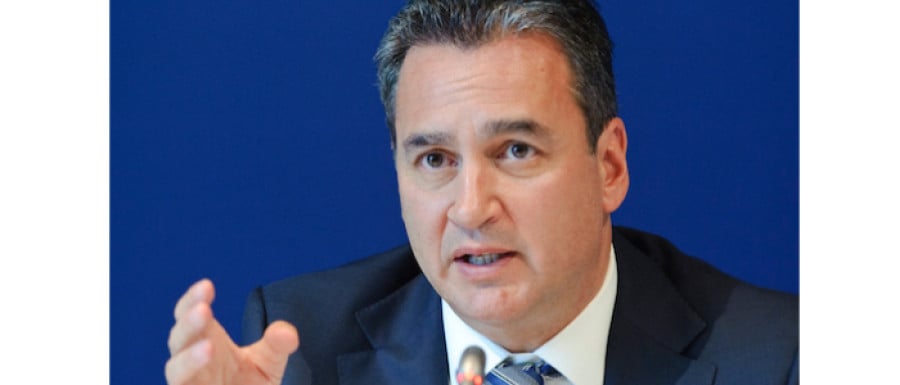Can FIFA legally publish the Garcia corruption report?

This blog examines exactly what the legal position is in relation to the publication/confidentiality of the report into the 2018 and 2022 World Cup bids produced by Michael J. Garcia.
The results of the investigation by the Chairman of the Investigatory Chamber of the FIFA Ethics Committee (‘FEC’)1, Mr Michael J. Garcia, into the awarding of the 2018 and 2022 FIFA World Cups is one of the most eagerly awaited reports in sporting history. In a previous blog2, in June 2014, I wrote about some of the legal issues concerning the FEC’s role into the investigation, however one issue that wasn’t covered in that blog, which has subsequently become of significant importance and subject to much scrutiny, is the publication of the report that was submitted by Mr Garcia on 5 September 2014 to the Adjudicatory Chamber of the FEC (‘the Report’).3
What is FIFA’s status on the publication of the Report?
It was hoped that the full 350 pages of the Report would be made public, particularly given FIFA’s insistence that there has been significant governance reform following the final report4 of the Independent Governance Committee (‘IGC’), led by anti-corruption expert Professor Mark Pieth, who looked in-depth at FIFA’s practices and structures. However it appears that this will not be the case and it is uncertain what level of information and detail will be made publicly available from the Report by the Chairman of the Adjudicatory Chamber, Mr Hans-Joachim Eckert. Indeed, on 17 October 2014, Mr Eckert gave a short interview5 to FIFA’s own website to clarify queries and counter some of the pressure he has been coming under from a variety of stakeholders within football. In response to the question, “Why will Michael Garcia’s report not be published in full?”, his response was, “Publishing the report in full would actually put the FIFA Ethics Committee and FIFA itself in a very difficult situation, legally. What is more, we have to respect the personal rights of the people mentioned in the report, which in the case of full publication of the report would in likelihood not be possible.”
What provisions of FIFA’s Code of Ethics and regulations apply?
The organisation and procedure of the FEC is governed by the FIFA Code of Ethics 2012 Edition (‘COE’).6 For completeness, it is worth noting that any substantive charges brought as result of the Report would principally be brought under the COE 2009 Edition7, principally Article 11 (bribery), because the report covers behaviour up to and including the voting for the 2018 and 2022 World Cups on 2 December 2010.
The COE is a document which is issued by the FIFA Executive Committee (‘ExCo’)8, the executive body of FIFA9, pursuant to Article 63(3) of the FIFA Statutes (Ethics Committee).10
The key provision of the FCE 2012 which applies to Mr Garcia’s investigation and Report is Article 36 (Confidentiality). Paragraph 1 of Article 36 states:
“The members of the Ethics Committee and the members of the secretariats shall ensure that everything disclosed to them during the course of their duty remains confidential, in particular, the facts of the case, contents of the investigation and deliberations and decisions taken, as well as private personal data in compliance with the FIFA Data Protection Regulations. Equally, the members of the Ethics Committee shall not make any declarations related to ongoing proceedings dealt with by the Ethics Committee.”
This appears to be supported by a letter which has been obtained by the website Inside World Football, whereby Mr Garcia promises confidentiality to an interviewee for the investigation.11 However this is in contrast to a recent statement issued by the law firm of which Mr Garcia is a partner where he called for “an appropriate publication of the Report” to be made to the public.12 In addition, in response to the document obtained by Inside World Football, he has said to the German newspaper Der Spiegel that the paragraph in the letter on confidentiality was a "standard statement" and "irrelevant" to the decision of "whether or not and to what extent the results of a completed investigation should be kept confidential or not", which one may not find entirely convincing.13 During a speech given by Mr Garcia at an American Bar Association (‘ABA’) lunch in London Mr Garcia also said, “It's one thing to tell people that a rigorous process is in place. It's another thing to show them how that process works and what it has uncovered”.14 In the aforementioned interview with the FIFA website Mr Eckert confirmed, “Michael Garcia has never said the report should be 100% published. He merely said that the ‘appropriate’ publication of his report should be authorised.”15
To continue reading or watching login or register here
Already a member? Sign in
Get access to all of the expert analysis and commentary at LawInSport including articles, webinars, conference videos and podcast transcripts. Find out more here.
- Tags: Anti-Corruption | Defamation | FIFA | FIFA Code of Ethics | FIFA Code of Ethics 2009 Edition | FIFA Code of Ethics 2012 Edition | FIFA Disciplinary Code | FiFA Ethics Committee | FIFA Executive Committee | FIFA Statutes | Football | Match-Fixing | United Kingdom (UK)
Related Articles
- FIFA Ethics Committee’s legal role in the investigation into the World Cup voting allegations
- Whistleblower appears as role model at Youth Olympics & investigation continues against Ghanian FA President
- FIFA outlines plans to ban TPO and new German Sports Betting Association seeks to sure-up online betting
- WADA claims links between doping and match-fixing; Singapore extends detention of match-fixing accused
Written by
Kevin Carpenter
Kevin is a advisor and member of the editorial board for LawInSport, having previously acted as editor.
Kevin specialises in integrity, regulatory, governance and disciplinary matters. His expertise and knowledge has led him to be engaged by major private and public bodies, including the IOC, FIFA, the Council of Europe, INTERPOL and the United Nations Office on Drugs and Crime (UNODC), as well as making regular appearances internationally delivering presentations and commenting in the media on sports law issues.
His research and papers are published across a variety of forums, including having a blog on LawInSport.

 Global Summit 2024
Global Summit 2024
Indrojit Gorai
I just found your website and i loved it as you explain the article very well. No doubt any one will get a lots of information from it. Thanks. Keep it up.
reply